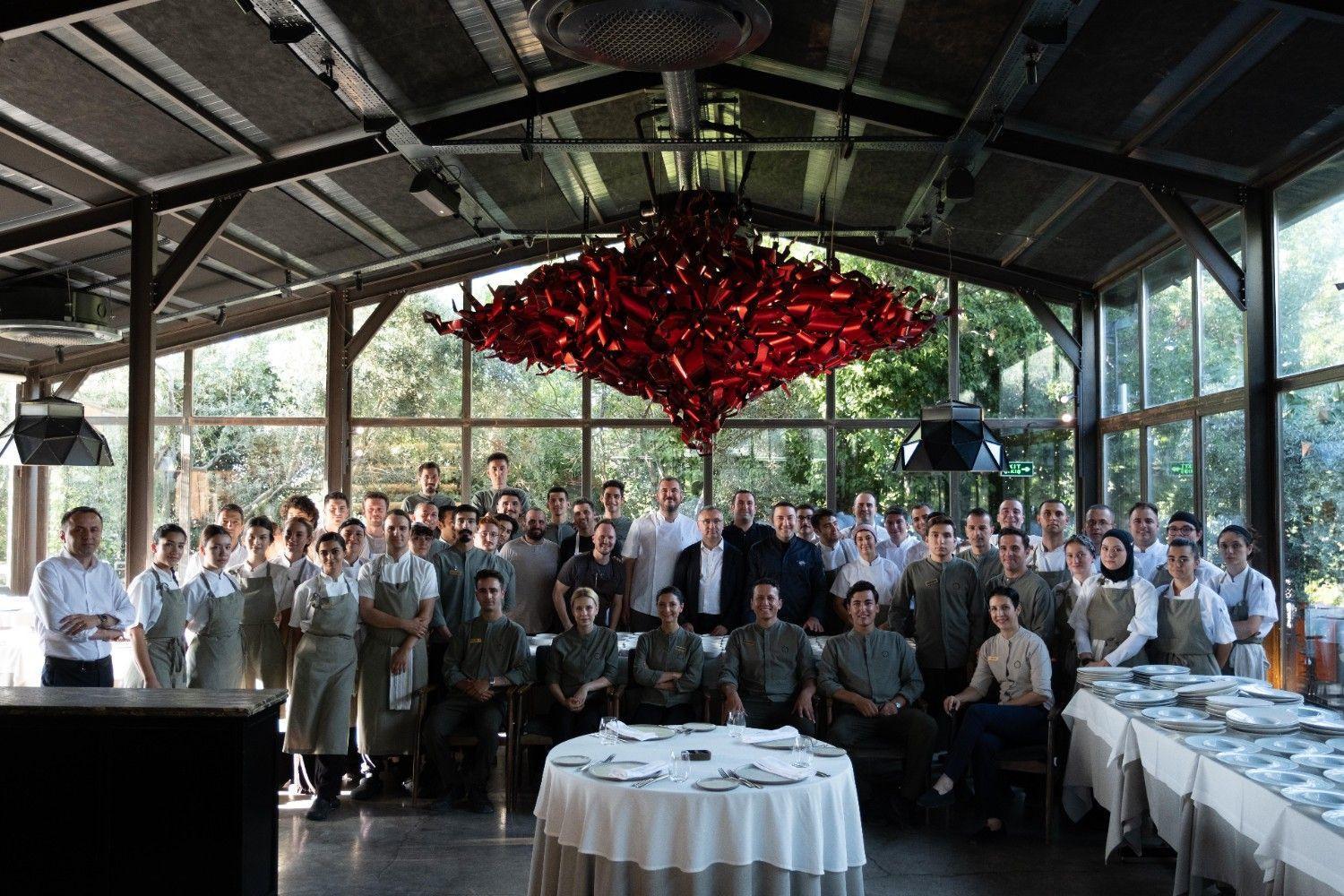
In a world where food is no longer just about flavor, Türkiye’s culinary identity is evolving into a powerful cultural narrative — one that blends local heritage with modern technique and strategic diplomacy
Earlier this week, I found myself at OD Urla for the third edition of the “Signature Dining Experience,” part of the Gault&Millau Türkiye Tour. Five acclaimed chefs — Osman Sezener, Atilla Heilbronn, João Oliveira, Josh Angus and Fabrizio Fiorani — stepped into the kitchen together, crafting plates where technical mastery met storytelling. I’ll save the details of what we ate and what lingered most on my palate for the end. First, let’s reflect on why such events matter and what they’re really designed to achieve.
With its geographical richness, deeply layered history and bountiful ingredients, Turkish cuisine is a cultural atlas unto itself, and that, in itself, is extraordinary. But does it mean much if this richness remains known only to us? The need to communicate this abundance to the world is no longer just a culinary issue; it’s a matter of national vision. For many years, Turkish gastronomy thrived within its own ecosystem, with limited visibility abroad. Today, that’s changing not merely through food, but through projects that frame food as cultural transmission. The Gault&Millau Türkiye “Signature Dining Experience” tour, consisting of five curated events, is one of the latest and most visible examples. And with this series, Gault&Millau has shown that it is not just an awards authority, but an active player in shaping the future of Turkish gastronomy.
The first stop of the tour took place at Teruar Urla and the second at Karma Bodrum with a group of international chefs. Two more experiences are scheduled, one in Bodrum and one in Istanbul. But these should not be mistaken for mere fine dining spectacles. Each dinner is a curated cultural statement, designed to present and interpret the Turkish culinary identity through the hands of its chefs.
One of the key figures behind this initiative is Gökmen Sözen, the founder of Sözen Group. Of all his many efforts, perhaps the most impactful is Gastromasa, the now-iconic conference that, after a decade, has secured a firm place on the global gastronomic calendar. Gastromasa has become a platform that tells the story of gastronomy not only on the plate, but in diplomacy, narrative, sustainability and strategy.
Looking back at its early years, it’s remarkable to see how Gastromasa has mapped Türkiye's rise in the culinary world. Chefs who once hesitated to attend now eagerly await an invitation, a shift that reflects not only the event’s success but also Türkiye’s growing authority on the global food scene. Gastromasa is no longer just a stage for famous names; it’s where young chefs find direction, where international chefs draw inspiration and where the pulse of global gastronomy is felt.
When I asked Gökmen what he considers the greatest strength of Turkish cuisine, his response was unequivocal: “The richness of local products. Tarhana, Antep pistachios, sumac, peppers from the Southeast… Each one is not just a flavor but a cultural vessel. But to integrate these products into global cuisine, chefs must reinterpret them using modern techniques. That brings us to a new imperative: Culinary storytelling. Today’s world doesn’t just care about what it’s eating, it wants to know why and how. The years ahead will be defined by culinary narratives rooted in cultural context. It’s both a responsibility and a huge opportunity.”
“We’re exhausting ourselves trying to promote this,” Gökmen adds. The future of Turkish gastronomy depends not only on what we possess, but on how strategically we turn that possession into a coherent, global narrative. This is where international collaborations, global event participation and media diplomacy will play a defining role. But none of this happens overnight. The road is long, and we need patience, collective awareness and, above all, clarity on how we want to speak to the world.
And now, let me take you briefly to my day in Urla — short in time, rich in flavor. As soon as I landed, I made my way to Beğendik Abi for lunch. No trip to Urla is complete without tasting Handan Kaygusuzer’s food; remember that. Our connection dates back 16 years, and since then, she has not only elevated quality but also expanded the repertoire, turning her kitchen into a living archive of the region’s culinary memory. Recommending just one or two dishes would do a disservice to what’s on offer. Her son, Hikmet, has long since taken his place behind the counter and the stove. Pull up a chair at the bar and let him guide you to your table.
That evening, at OD Urla, the meal unfolded under the stars. Among many standout dishes, it was Osman Sezener and Atilla Heilbronn who truly left their mark, especially with Heilbronn’s exquisitely layered vegan eggplant plate.